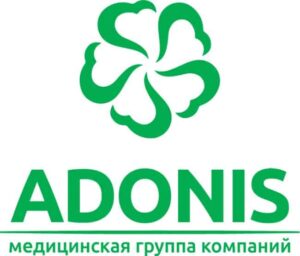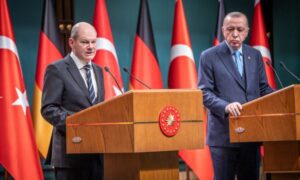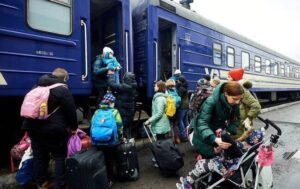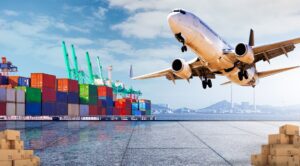
The medical group of companies Adonis has not stopped the work of Kyiv clinics since the beginning of hostilities, and has resumed elective pediatric surgery at a clinic in Shalimov Street, the medical network told the Interfax-Ukraine agency.
“Adonis did not stop work in Shalimov Street during the period of hostilities. We switched to the format of a military field hospital. We provide assistance around the clock to the wounded and the civilian population,” Olena Mukhina, the deputy medical director of the medical group, said.
According to her, the clinic in Shalimov Street “was not originally intended for military needs, but we decided to reformat it.”
Mukhina noted that the clinic, having three specialties working around the clock – obstetrics and gynecology, pediatric surgery, anesthesiology, maximally covers the needs of the civilian population.
“Even births in emergency conditions were taken, not being a maternity hospital in fact,” she said.
Mukhina said that the Shalimov clinic plans to resume consultations with an endocrinologist in the near future.
“Requests for elective surgeries have declined, but there are,” she said.
In turn, the director of the Adonis branch in Spaska Street, Kyrylo Kretov, also noted that due to the war, the number of scheduled operations has decreased.
“The clinic in Spaska did not stop its work. We provide emergency care to wounded soldiers and civilians. We carry out planned operations: general surgery, gynecology, orthopedics-traumatology, proctology. We conduct outpatient appointments,” he said.

Turkish President Recep Tayyip Erdogan and German Chancellor Olaf Scholz discussed bilateral relations between the countries and Russia’s military aggression in Ukraine in a telephone conversation, the Anadolu agency reported on Monday.
“The Turkish President, in a conversation with the German Chancellor, noted the importance of strengthening relations between Turkey and Germany, supporting close cooperation at all levels,” the agency reports.
Erdogan also stressed Turkey’s efforts to de-escalate the situation in Ukraine due to the war unleashed by Russia. The President of Turkey has repeatedly taken the initiative to organize negotiations between Russian President Vladimir Putin and Ukrainian President Vladimir Zelensky on Turkish territory, and also noted that Turkey will be ready in the future to act as one of the guarantors of Ukraine’s security, but this issue needs to be studied in more detail.

The vast majority (79.2%) of refugees from Ukraine intend to return to their homeland after the end of the war, and only 10.9% do not plan to return, according to the results of a survey conducted by the Sociological Service of the Razumkov Center at checkpoints in the Transcarpathian region from March 15 to April 1.
During the survey, 101 respondents over 16 years old were interviewed, who were traveling from Ukraine on foot or by road. 89.1% are sure that Ukraine will win this war, only 1% are sure that it will lose, the rest found it difficult to answer.
83.2% of refugees are women. 63.4% travel with their children and only 12.9% on their own.
36.6% – leaving the country at the age of 30-39, 25.7% – 40-49 years old, 18.8% – 16-29 years old, 10.9% – over 60 years old and 7.9% at the age of 50 -59 years old.
The relative majority of refugees are from Kyiv and Kharkov regions (18.8% each), slightly less from Kiev (11.9%), Donetsk (7.9%), Zaporozhye (6.9%), Mykolaiv, Odessa, Kherson ( by 5%) regions. No one left Volyn, Lvov, Khmelnytsky, Ivano-Frankivsk, Chernivtsi, Ternopil regions. 55.4% stated that they left the settlement where the hostilities took place, 12.9% – that the hostilities took place nearby, 9.9% – that there were no hostilities, but their locality was bombarded or shelled, 13.9 % – that this happened in a neighboring settlement, and only 7.9 noted that there were no hostilities and shooting either in their settlement or nearby.
26.7% reported that they received assistance from government agencies, 53.5% – from volunteers, 8.9% – from religious organizations, 6.9% – from enterprises (including at the place of work), 40, 6% – from relatives and friends, 44.6% – from unfamiliar fellow citizens, only 20.8% received no help at all. 63.4% of refugees said that the language of communication at home is Russian (only 30.7% – Ukrainian), but only 21.8% called Russian their native language (Ukrainian 65.3%, 4% named another language).

German authorities are looking for private buyers for Gazprom’s assets in the country, offering government loans from KfW IPEX-Bank as support, Bloomberg reports, citing sources familiar with the situation.
Last week, Gazprom reportedly announced that it had ceased control of the Gazprom Germania group and all of its assets. This is the WINGAS/WIEE distributor, the astora storage operator. The Gazprom Marketing & Trading group also includes the retail operator Gazprom Marketing & Trading Retail Ltd. (Gazprom Energy brand) and the global LNG trader Gazprom Global LNG. In 2019, the consolidated turnover of Gazprom Germania amounted to 24 billion euros, in 2020 – 13 billion euros.
The source of the agency also notes that Germany does not rule out the nationalization of parts of Gazprom Germania as a last resort, although Berlin wants to find another solution. Germany has made “mixed progress” in its efforts to bail out Gazprom Germania, but the government wants to avoid nationalizing or even expropriating the group’s assets, Bloomberg said. Officials are currently still studying the economic impact of a possible shutdown of Gazprom Germania’s companies. The final decision has not yet been made.
Finding a buyer for the assets will not be easy, the publication notes, as the companies’ businesses are closely linked: Gazprom Marketing & Trading is engaged in hedging and supply for Wingas and Gazprom Energy. And without these links, consumers will be forced to buy resources at much higher prices.

During the war in Ukraine, 18 journalists were killed, 3 went missing, 8 were kidnapped, 13 media representatives were injured, the Ministry of Culture and Information Policy reports.
“The work of journalists during the war is a front line. Media representatives are often not only physically at the front and cover the course of military events, but are also warriors of the information front. Today they are debunking the Kremlin’s endless absurd lies. We deeply appreciate everyone’s contribution to our common struggle on the information front against a bloodthirsty enemy,” the ministry said in a statement.
It is noted that according to the General Prosecutor’s Office of Ukraine, Russia committed 74 crimes against media representatives, including 19 against citizens of other states: Great Britain – 5, the Czech Republic – 2, the United States -2, Denmark – 2, the UAE – 2, Russia – 2, Ireland – 1, Switzerland – 1, France – 1, Lithuania – 1.
In particular, among journalists 18 people were killed (15 men and 3 women), 8 people (4 men and 4 women) were kidnapped, 13 people were injured, 3 people disappeared without a trace, 15 journalists were intimidated.
In addition, at least 7 facts of shelling, which led to damage or destruction of TV towers, TV and radio stations, as well as 22 blockages and cyberattacks on the media, were recorded.
Thus, 31 journalists were injured in Kyiv region, 15 in Zaporizhia, 7 in Kyiv, 5 in Kherson, 5 in Donetsk, 2 in Crimea, 2 in Sumy, 2 in Odesa, and 1 in Chernihiv, in Mykolaiv – 1, in Luhansk – 1, in Kirovohrad – 1, in central Ukraine – 1.
“Ukraine cooperates with a number of international human rights organizations and daily informs them about the crimes of the Russian occupation forces against journalists who, in superhuman conditions, cover events on the front line,” the report says.
The Ministry of Culture emphasizes that every death and every crime against representatives of the media will be investigated without fail, and those responsible will be prosecuted.
Among other things, the ministry expressed deep condolences to the families and loved ones of all the wounded, captured, missing and killed journalists.

Given the closure of transit through the territory of Belarus and the Russian Federation, as well as an increase in the number of freight transportation by road, a number of restrictions are being removed or adjusted from April 4, 2022, the Ministry of Infrastructure of Ukraine announced on its Facebook page on Monday.
The period of validity of the electronic application for permits has been extended from seven to 10 days, the ministry said.
In addition, the following changes have been adopted for carriers: Poland – increased to five permits of all types per vehicle from April to May, the Czech Republic – increased to two permits of all types but one vehicle up to 10 tonnes (for a month), Serbia – the restriction on travel across the country for vehicles up to 10 tonnes has been lifted, Romania – temporary registration of permits of the Organization of the Black Sea Economic Cooperation to Georgia, Azerbaijan, Kazakhstan, Uzbekistan for vehicles of the ecological standard Euro-3 and higher.
The ministry said that from the very beginning of the war, it has been conducting systemic negotiations with partner countries on the abolition of the permit system for the period of martial law.
“As of April 4, we managed to agree on the cancellation of bilateral and transit permits for transportation through the territory of six countries of the European Union, in particular from Bulgaria, Hungary, Italy, Denmark, Latvia, Estonia, as well as through the territory of Georgia and Turkey. Slovakia also provided transportation without permits,” the report says.
In addition, as noted, a mechanism has been established for permit-free passage of all humanitarian cargo with Moldova, Romania, Slovenia, Austria, the Czech Republic, Poland, Germany, the Netherlands and Lithuania.